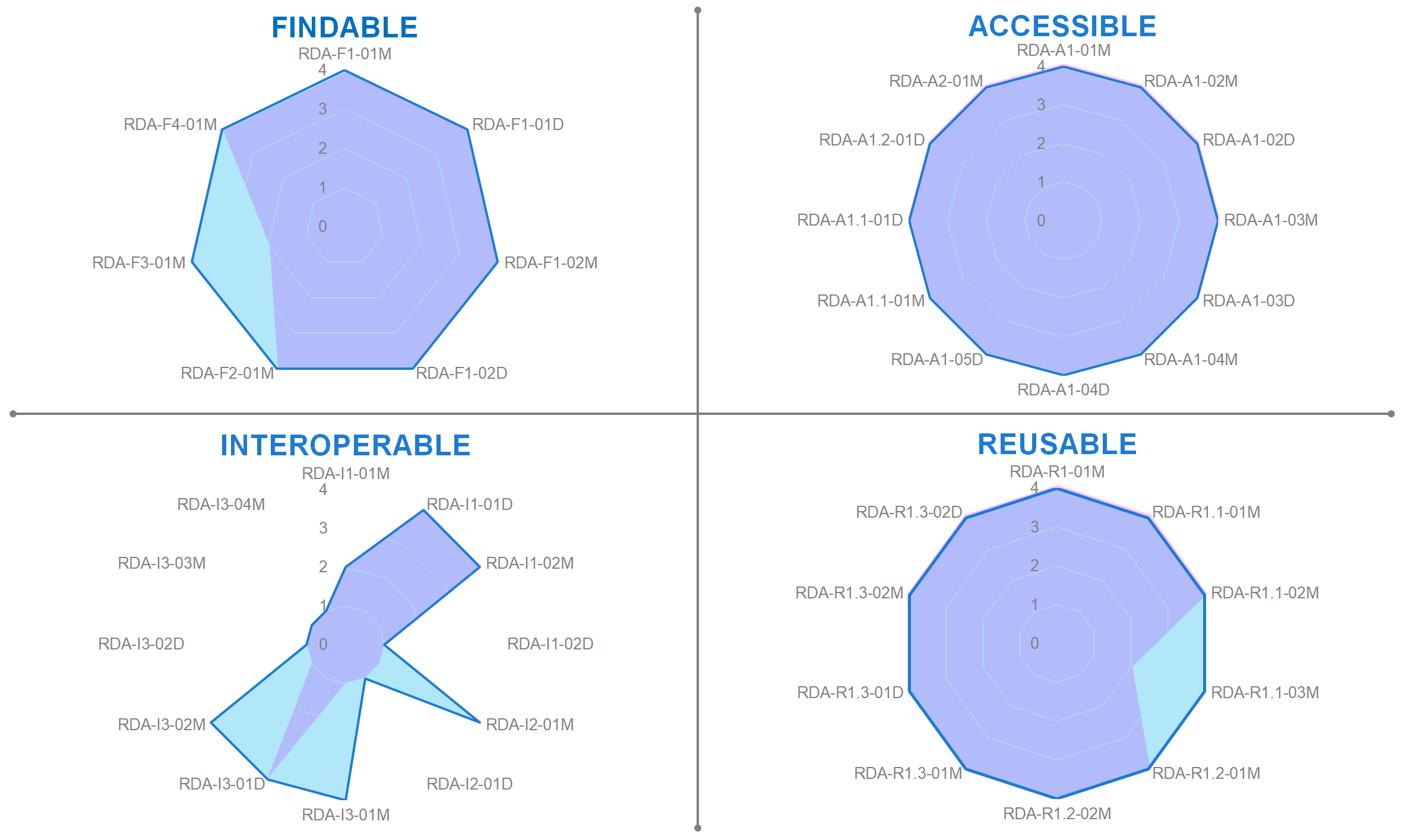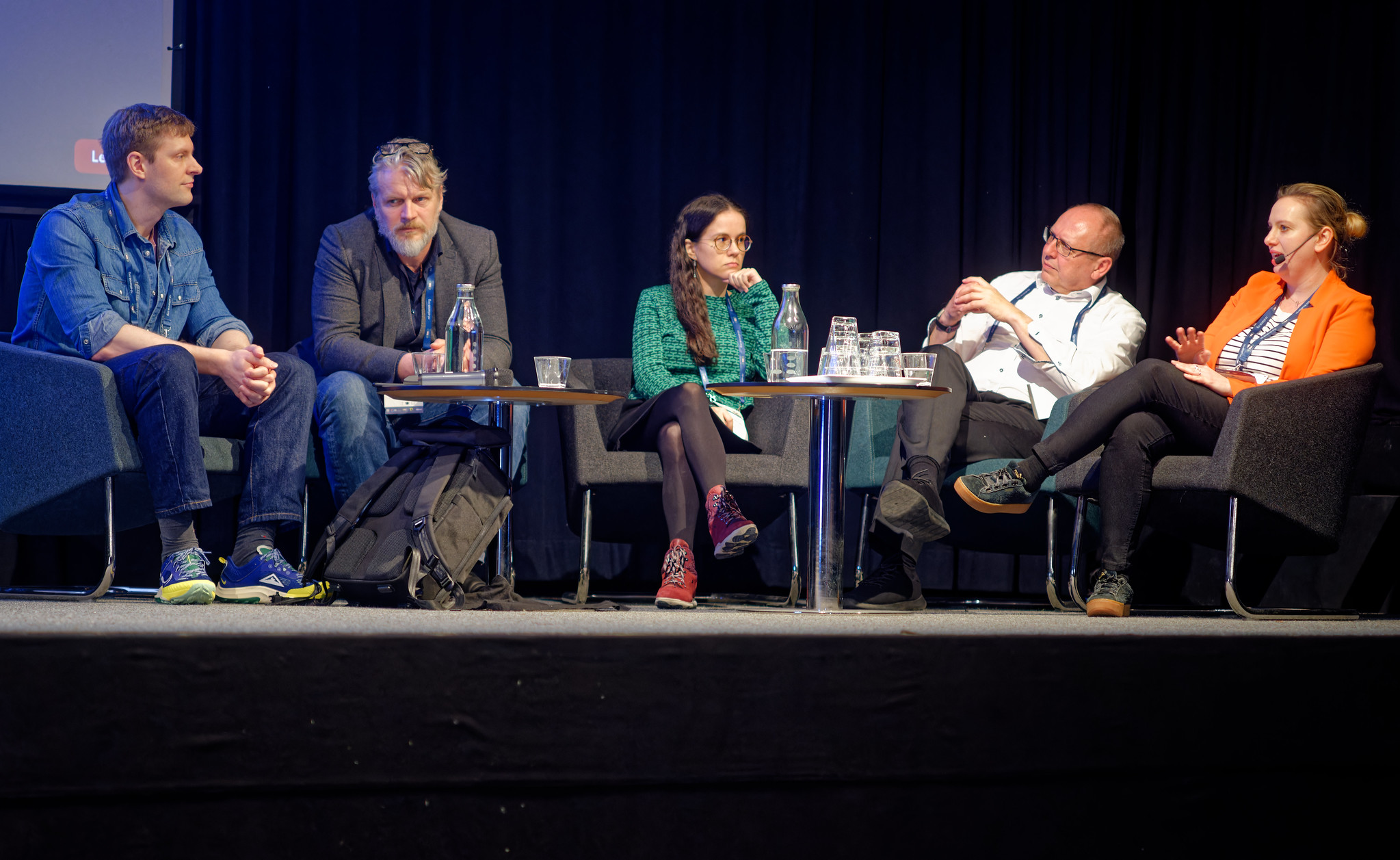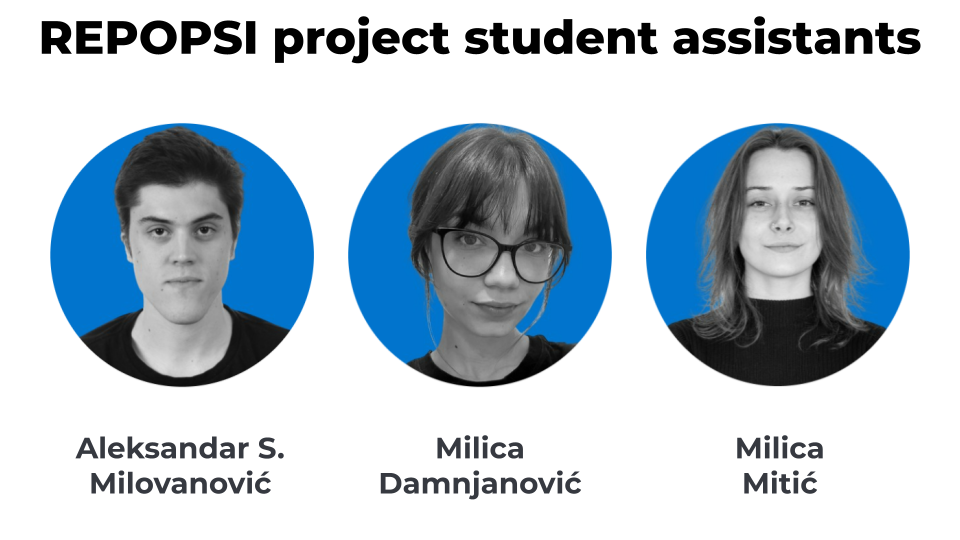REPOPSI is an open repository where you can find (and store your own) psychological instruments, such as tests, scales, and questionnaires. The LIRA Lab launched the Repository in March 2020. At that time, REPOPSI had 129 records – as of July 2023, there are 200. But the increase in the number of instruments is not our only achievement. Our efforts to promote REPOPSI to a wider audience led to more crowdsourced contributions. We have also improved the Repository’s adherence to the principles of Open Science, making it possible for REPOPSI to serve as a role model for the development of other smaller-scale open repositories of research data. The most significant moment for REPOPSI was when we were awarded a €50,000 grant from the EOSC Future and Research Data Alliance (RDA). Those were the first funds we had received for the REPOPSI development.
Meet the project funders
 In July 2022, we applied to one of the Open Calls funded by EOSC Future and managed by RDA – RDA Open Call for cross disciplinary science adoption grants #1. Go here to learn about all of the EOSC Future Open Call projects. EOSC Future is an EU-funded Horizon 2020 project that is implementing the European Open Science Cloud (EOSC). The goal of EOSC is to give European researchers access to a wide web of FAIR data and related services. RDA is an international member-based organization focused on the development of infrastructure and community activities that reduce barriers to data sharing and exchange, and the acceleration of data-driven innovation worldwide.
In July 2022, we applied to one of the Open Calls funded by EOSC Future and managed by RDA – RDA Open Call for cross disciplinary science adoption grants #1. Go here to learn about all of the EOSC Future Open Call projects. EOSC Future is an EU-funded Horizon 2020 project that is implementing the European Open Science Cloud (EOSC). The goal of EOSC is to give European researchers access to a wide web of FAIR data and related services. RDA is an international member-based organization focused on the development of infrastructure and community activities that reduce barriers to data sharing and exchange, and the acceleration of data-driven innovation worldwide.
REPOPSI project basics
- Project title: TRUST-ification and FAIR-ification of an open repository for research instruments in psychology: REPOPSI’s adoption of RDA outputs
- Grant amount: 50,000 EUR
- Duration: October 2022–July 2023 (nine months)
- Awarded organization: University of Belgrade – Faculty of Philosophy
- Project team: Aleksandra Lazić (project lead), Ljiljana Lazarević, Danka Purić, Iris Žeželj, and Obrad Vučkovac. Visit this page to learn more about the team!
- Project page: The project’s activities and outputs are featured on the RDA website.
- Open materials: The project’s open materials are on Zenodo.
The project consists of three work packages (WPs), which you can read more about below. 
WP1: Improving the TRUST-worthiness and FAIR-ness of the Repository
The first WP aimed to improve the TRUST-worthiness and FAIR-ness of REPOPSI, including its data (i.e. psychological instruments) and metadata (i.e. data describing the data in the Repository). The TRUST-worthiness of a Repository is reflected in its adherence to the principles of Transparency, Responsibility, User focus, Sustainability, and Technology. The FAIR-ness of (meta)data is reflected in their adherence to the principles of Findability, Accessibility, Interoperability, and Reuse. To get a better idea on where to concentrate our efforts and to evaluate the progress we made, we conducted a self-assessment test at the start and at the end of the project, relying on the FAIR Data Maturity Model and the CoreTrustSeal Requirements 2023-2025. The graphs below show how REPOPSI’s FAIR-ness improved, compared to the start of the project.  As part of WP1, we:
As part of WP1, we:
- Created a new website to ensure that all important information is more transparently declared and more easily accessed by the users
- Made the Repository contribution form available as an online survey so that anyone who wishes to make their original instruments and instrument translations openly available in REPOPSI can do so more efficiently
- Developed an interactive, open-source web app to make browsing and accessing REPOPSI records easier and quicker
- Put REPOPSI metadata values into XML documents following the DataCite Metadata Schema and implemented a FAIR-compliant controlled vocabulary to enrich metadata and make them machine-understandable (i.e. able to be processed by machines, without human intervention).
WP2: Disseminating the activities of the project
The second WP was focused on communicating the results of the project, advertising REPOPSI to a wider user base, and promoting further uptake of RDA outputs. As part of WP2, we:
- Attended the RDA’s 20th Plenary in Gothenburg, Sweden, and participated in the RDA/EOSC Future Satellite Event “Building blocks of Global Research Commons: Europe and beyond” (the photo below shows Aleksandra, in the middle, at the “The glue to a successful Commons: Interoperability” session)

- Organized an online workshop in cooperation with the Open Science Community Serbia to share lessons learned and demonstrate new REPOPSI technologies
- Onboarded REPOPSI as a new service to the EOSC Portal
- Added REPOPSI as a new database entry to the FAIRsharing.org Registry
We will continue sharing blog posts and news on the website. We will also keep promoting the project outputs via LIRA Lab’s social media accounts on Facebook, Twitter, and LinkedIn, so make sure to be on the lookout for the #REPOPSI hashtag.
WP3: Improving the completeness of the data in the Repository
The third WP was designed with the goal to increase the number of REPOPSI records. First, we recruited and trained three psychology master’s students from the University of Belgrade – Faculty of Philosophy to assist us with WP3 activities: Aleksandar S. Milovanović, Milica Damnjanović, and Milica Mitić.  Next, student assistants searched the E-theses repository and documented the relevant doctoral theses and psychological instruments available in them. After the senior project members determined which instruments satisfied the copyright and quality requirements to be opened in REPOPSI, student assistants started filling in the online REPOPSI contribution forms and contacting corresponding authors where more information was needed. This way, we recorded 120 new original instruments and instrument translations; most of them can be made fully open in REPOPSI, while the rest will be available upon request or at an external website. A total of 15 records were added to REPOPSI in July 2023. We plan to add more records by the end of the year, so make sure to check back for updates!
Next, student assistants searched the E-theses repository and documented the relevant doctoral theses and psychological instruments available in them. After the senior project members determined which instruments satisfied the copyright and quality requirements to be opened in REPOPSI, student assistants started filling in the online REPOPSI contribution forms and contacting corresponding authors where more information was needed. This way, we recorded 120 new original instruments and instrument translations; most of them can be made fully open in REPOPSI, while the rest will be available upon request or at an external website. A total of 15 records were added to REPOPSI in July 2023. We plan to add more records by the end of the year, so make sure to check back for updates!
